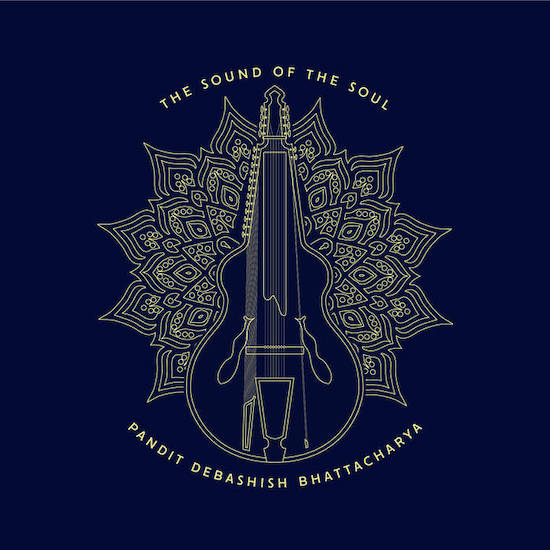Debashish Bhattacharya was not the first to bring Hindustani classical music to the slide guitar, but he has certainly brought the field its most recent international recognition – helped by successful collaborations with musicians such as John McLaughlin. The Sound of the Soul is Bhattacharya’s first solo release since his 2017 tribute to Hawaiian guitar master Tau Moe; this time he moves back to the classical frame to celebrate the 100th anniversary of the birth of one of his gurus, sarod pioneer Ustad Ali Akbar Khan. Here, Bhattacharya plays the chaturangui, an instrument of his own design that looks as beautiful as it sounds. A sort-of mix between a hollow-neck lap steel guitar and a hollow-body Gibson, it has a bunch of sympathetic strings that makes it distinctively Indian in its appearance and in the way each note rings out into the ether.
There are four pieces in this set, three shorter and one longer. The format of an album containing multiple pieces does a disservice to Hindustani classical music. Although you can get a nice taste in ten minutes, it just doesn’t provide the nourishment of an extended exploration into the raga, where an artist can showcase the range of its colours. You don’t get many three-minute symphonies, after all. And so, after a somewhat underwhelming nine-minute opener, it is a lovely change to dive into the second track, ‘To His Lotus Feet’, which spans thirty-nine minutes.
It begins with a considered, thoughtful and meditative alap section, after which chaturangi is joined by the tabla of Swapan Chaudhuri. Together, the musicians build and build through ebbs and flows, compositions and improvisations, towards the full acrobatic fireworks of the fast-paced jhala, a climax with breathtaking runs that sacrifice none of the subtlety of the slower sections. Bhattacharya allows himself to take his time, and the result is so much more rewarding for it.
It’s possible to condense all those elements into a short piece, but none of them can reach the highs they really deserve. The final two pieces both clock in at under ten minutes, but by that point we’ve already had a main course, and these are lighter sweets to enjoy for afters: the perky, happy title-track is the liveliest of the set, and ‘Colors of Joy’ most clearly displays Bhattacharya’s international influences while remaining idiomatic within the Hindustani style.
John McLaughlin’s proclamation that Bhattacharya is “the master of the slide guitar […] he has no equal” is probably already borne out across the latter’s already-expansive discography, but Bhattacharya’s return to the classical style of his origins is a useful reminder of what raised him to such a platform in the first place, without losing any of the worldliness he’s gained along the way. McLaughlin calls Bhattacharya “a must for all guitarists!” – anyone who appreciates the finer things in music should take a listen too.


